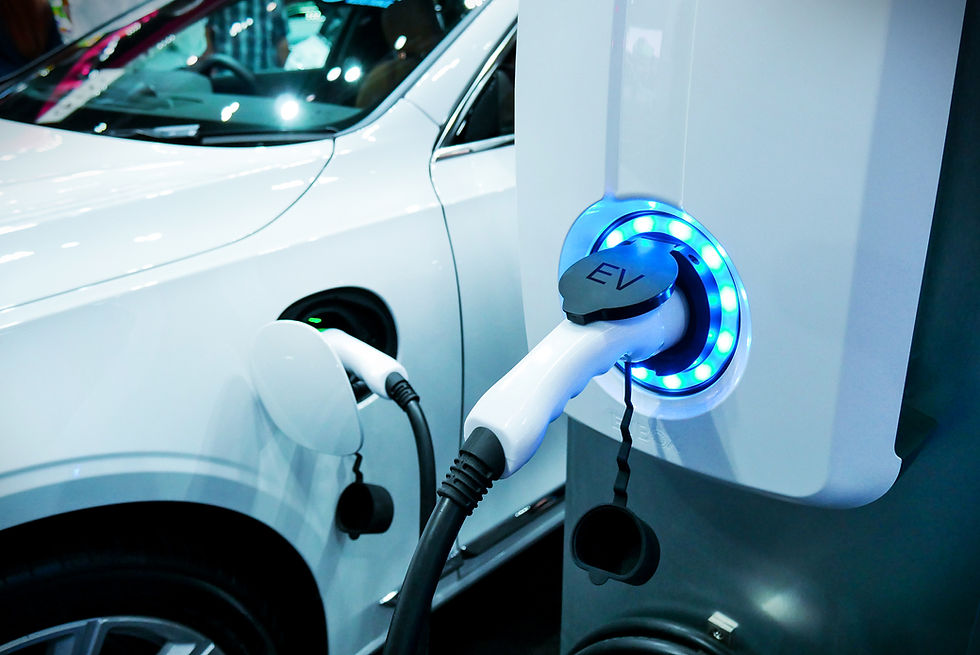Electric Car Charging For The Home
- dvittozzi325
- Sep 18, 2019
- 3 min read

Every year, usually around MOT time, car owners book a date for car servicing. It is then left up to their garage to prepare the vehicle for the rigours of the following year. All the owner has to do is to clean it and top up the fuel. With electric cars it is exactly the same scenario except that the fuel top up is done very differently and, best of all, in the comfort and dry of the family home and not on some windswept garage forecourt.
It’s a fact that over the last few years, pure electric cars have slowly gained a foothold in the minds of car buyers. Battery technology is improving all the while and new model electric vehicles are slowly but surely increasing their range. In the meantime petrol/electric hybrids have proved to be immensely popular as buyers seek to reduce vehicle emissions and save money. Either way, both types of motor require electricity.
Public Charging
As is well known, the spread of public charging points has been piecemeal and it is doubtful over time that there will ever really be enough, should the use of electric cars proliferate as expected. That said, the reality is that for most of our journeys on a daily basis, pure EV range is probably more than enough and even a hybrid with an electric-only range of around twenty-five miles or so will still manage a trip into the local town without troubling the petrol engine. Thus, almost all of the time, home charging will suffice.
Charging Now
Drivers opting for a plug-in hybrid electric vehicle (PHEV) with a limited electric range and a smaller battery will find an overnight charge is achievable via a normal plug socket utilising the supplied charging cable that comes with the car. The snag is that these domestic items only draw a maximum current of just 3kW. For pure EV owners, charging can thus take a very long time, plus the fact that car makers don’t recommend using three-pin cables long-term, as they can cause damage to the socket due to the high amperage drawn over a sustained period of time. So, if buyers are really set on driving the electric road then they are going to need a fast, dedicated charger.
Charging For The Future
To make the charging process faster and more convenient many electric car owners are seeing the value of installing a wall-mounted charging unit, or wall box, in or on their garage or on the wall of the house. It’s really the sensible solution. These dedicated boxes increase the charging rate and therefore speed the whole process up by providing power at a much higher rate than regular three-pin sockets. Manufacturers can supply them or wall boxes can be purchased as after-market items. They are easily installed by a qualified electrician and these useful items are getting better all the time.
Independent manufacturers are beginning to offer a much better range and have come up with a selection of home charging systems that take the refuelling of electric cars to a whole new level. With charging up to ten times faster and making full use of cheaper off-peak electricity, these sophisticated products offer far greater control and security.
Operated directly at the wall or via a WiFi-enabled app, which also provides for remote monitoring and updates, the chargers meet the needs of our fast-moving lives. With a range of intelligent solutions like facial recognition and gesture technology, EV buyers can have the very latest in flexible, adjustable EV charging up to 32 Amps. They can be tethered to a dedicated cable or the owner can provide their own. Some will even accept both Type 1 and Type 2 cables which covers most vehicles available today.
A Price To Pay?
Inevitably in these early days there is a catch. The latest crop of home electric car chargers are not cheap to say the least. The savings made by fuelling with electricity will help to balance the purchase price and remember there is only a need to buy these once and users are still helping to reduce exhaust emissions. Older, basic wall boxes are a lot less expensive but are of course slower. It all comes down to an owner’s needs and budget.
Those not yet convinced by the quiet EV revolution can still be happy that many fossil-fuel cars are now cleaner and more economical than ever before so continue to make a great choice.




Comments